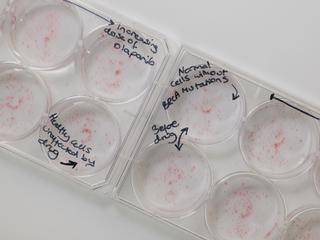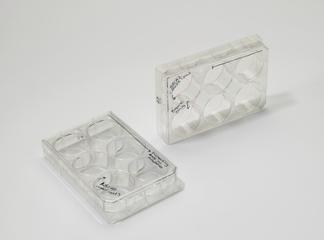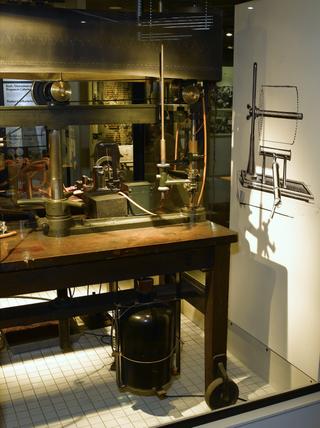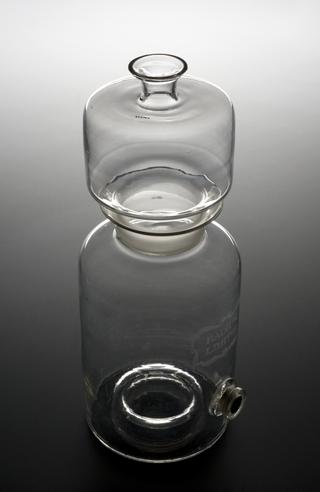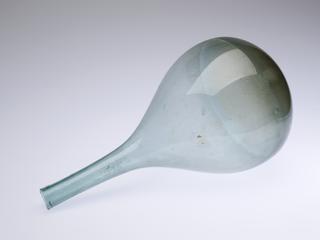










Hydraulic Lung, developed by scientists at GSK, including David Prime, as a mechanical way of simulation human breathing to test inhaled dry powder inhaler medications, United Kingdom, 1999-2004
Dry power inhalers are a common treatment for asthma. If you use one of these inhalers, the medicine is released into your lungs when you breathe in through the device. Making sure the right dose is delivered depends on rigorous testing of the device and often relies on standardised assumptions about how much air people breathe in and how fast. Age, illness, and the characteristics of the device used can all affect how the patient breathes in. The Hydraulic Lung was developed to provide a range of human-like breaths in to test devices and would also self-adjust in the way a human would when breathing in medicines from different devices. This made it unique among dry powder testing apparatus.
An inhaler is attached to a plastic anatomical cast of the oropharynx (part of the throat behind the nose) at the right hand end of the device. An external pressure source is applied to raise a column of water on the right-hand side, which can be altered to different heights to mimic different people’s breathing. A valve at the base of the left hand side is closed to isolate the raised water. On opening this valve, the water rapidly returns to the rest position creating a partial vacuum at the inhaler mouthpiece that is attached to the end of the column on the right hand side, creating a breath in. The flow rate of this breath depends, in part, on the characteristics of the inhaler device. Using mathematical equations, the energy required for dose emission and aerosolization can be worked out. The mass of drug (or other components of the dose) can be recovered from the filter and quantified using High Performance Liquid Chromatography.
Details
- Category:
- Laboratory Medicine
- Object Number:
- 2022-491
- Materials:
- plastic (unidentified), metal, wood (unidentified) and glass
- Measurements:
-
overall: 2230 mm x 1070 mm x 330 mm, 50 kg
- type:
- laboratory apparatus
